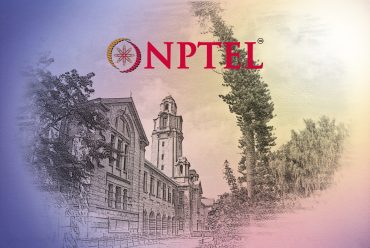Secure Computation: Part I
INTENDED AUDIENCE : The course is intended for any student from the computer science and Mathematics discipline
PREREQUISITES : The participant should have done a basic course on Cryptography (such as the Foundations of Cryptography course available on NPTEL) and a basic course on Discrete Mathematics
ABOUT THE COURSE :This course will discuss about how using various cryptographic primitives, one can do computation on distributed and sensitive data, also known as secure multi-party computation (MPC), which is one of the most fundamental problems in cryptography as well as distributed computing.
The need for distributed computation on private data arises in several real-world applications that require computations involving sensitive data from two or more mutually distrusting entities. Consider the following example, which is one of the latest applications of secure computation: The Earth is orbited by thousands of man-made satellites and several thousands of orbital debris. The growing number of satellites and space debris orbiting the planet increases the danger of collisions. And this is not a hypothetical scenario, as several such “high-profile” collisions have been reported in the recent past. Given the expensive cost of satellites, the host countries would like to avoid collision. A collision can only be predicted if the detailed orbit information of the individual satellites is known. However, such information can be highly sensitive and in fact, it can even be a national secret. So, what is needed here is a way to determine whether two satellites are about to clash with each other based on the detailed locations of the satellites, but without the need of disclosing the locations of the satellites to other host countries.
Secure MPC models the above and several such applications that make simultaneous demands for the privacy and usability of sensitive data. Other examples include secure e-voting, secure e-auction, secure signal-processing, secure bioinformatics, secure biometrics, secure machine-learning, secure outsourcing, privacy-preserving data mining, to name a few.

Prof. Ashish Choudhury
IIIT Bangalore
Dr. Ashish Choudhury is currently an Associate Professor at IIIT Bangalore. He did his MS and PhD in Computer science from IIT Madras, followed by postdoc at ISI Kolkata and University of Bristol. His research work is focused on the foundation of cryptographic protocols for real-world problems. His current projects aim to design efficient protocols in the asynchronous network model which can be realized in practice. In general he is interested in secure distributed computing and all areas of theoretical computer science.
Course layout
Week 1: Secure Computation: motivation and real-world examples, various dimensions, recalling relevant topics from abstract algebra (groups, rings, fields) and cryptography
Week 2: Secret sharing (motivation, definition and applications), Shamir secret-sharing, additive secret-sharing, replicated secret-sharing
Week 3: Linear secret-sharing, general secret-sharing, secure message transmission (SMT)
Week 4: BenOr-Goldwasser-Wigderson (BGW) protocol: security proof and detailed analysis
Week 5: Degree-Reduction problem and various solutions, efficient protocols for evaluating multiplication gates, MPC in the pre-processing model
Week 6: Perfectly-secure MPC tolerating general adversaries, perfectly-secure MPC for small number of parties (the case of secure 3PC)
Week 7: Goldreich-Micali-Wigderson (GMW) protocol: security proof and detailed analysis, Oblivious transfer (OT)
Week 8: Construction of OT protocols from various cryptographic assumptions, GMW protocol in the pre-processing model
Week 9: OT extension, Yao’s protocol for secure 2-party computation
Week 10: Various optimizations of Yao’s 2PC protocol
Week 11: Mixed-world MPC protocols: The case of 2 PC
Week 12: Mixed-world 2PC protocols in the ABY framework
Books and references
This is an advanced level research course where the contents are based on research papers. However, for some of the topics, the following textbooks can be used for the reference purpose:
- Efficient Two-party Protocols- Techniques and Constructions; by Carmit Hazay and Yehuda Lindell. Springer-Verlag, 2010.
- Engineering Secure Two-party Computation Protocols, by Thomas Schneider. Springer Verlag, 2010.
- Secure Multiparty Computation and Secret Sharing, by Ronald Cramer, Ivan Damgard and Jesper Buus Nielsen. Cambridge University Press, 2015.



